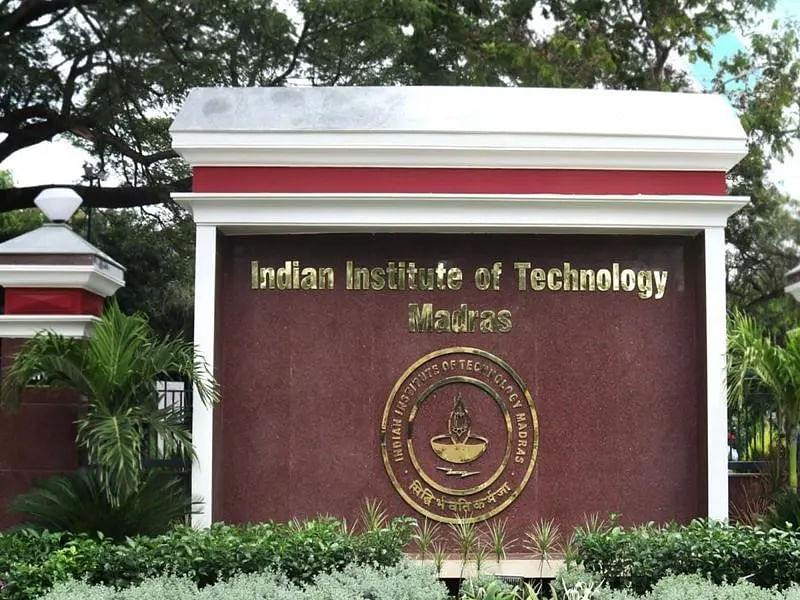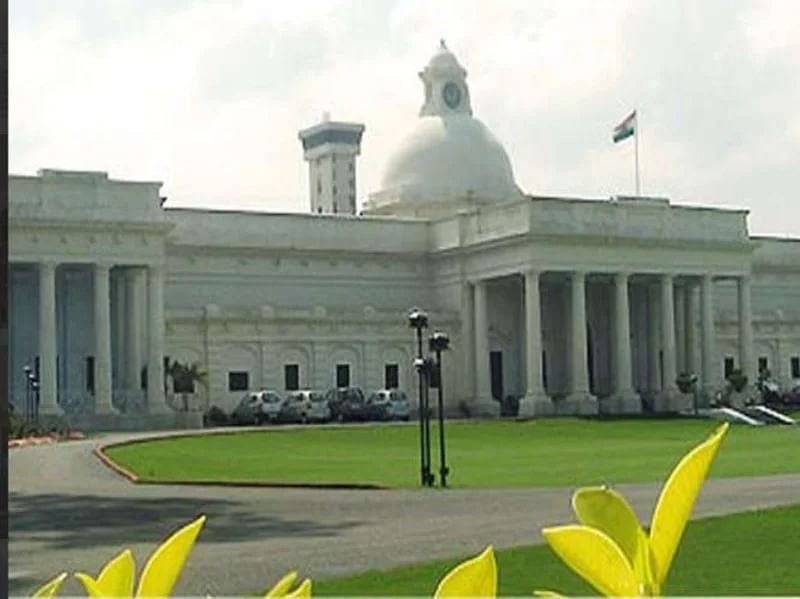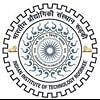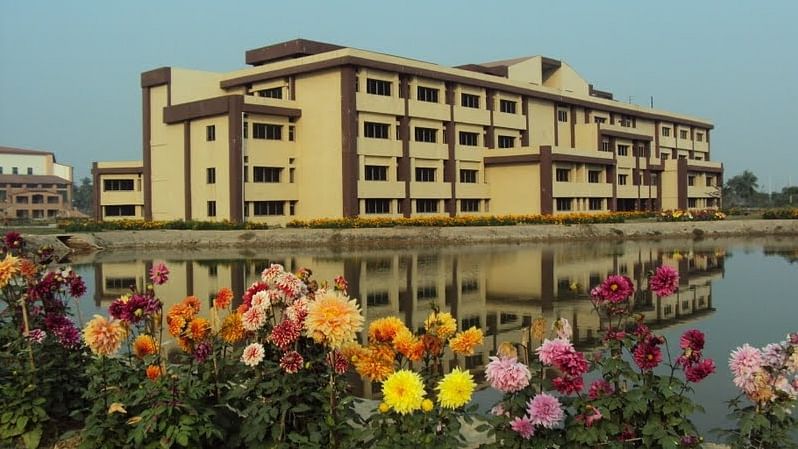M.Sc Syllabus and Subjects

Latest Updates for MSc
- 11 April 2024 :
IIT JAM Counselling 2024 admission process is ongoing. The last date to apply is Apr 24, 2024.
- 03 April 2024 :
NEST Application Form 2024 is out. The last date to apply is May 31, 2024.
- 03 April 2024 :
IISER Application Form 2024 is ongoing and will last till May 13, 2024.
- 03 April 2024 :
IIT JAM Scorecard 2024 is out. The last date to download scorecard is Jul 31, 2024.
The MSc course imparts practical, and theoretical knowledge in the subject areas to the students, such as Electromagnetic Theory, Real Analysis, Cell Biology, Mechanics, Polymer Science, etc. MSc job scope is spread across various areas or industries such as space research, the medical industry, biotechnology firms, survey departments, private industries, and national organizations.
Semester Wise MSc Syllabus
The MSc syllabus focuses on studying the concepts of scientific, technical, and numerical research. The MSc subjects list in India emphasizes Electromagnetic Theory, Real Analysis, Cell Biology, Mechanics, Complex Analysis, Algebra, Electronics, etc. Under the MSc course, there are plenty of specializations students can choose from. Therefore, the MSc subjects list over time focuses on specific topics, resulting in an in-depth and comprehensive knowledge base.
MSc First Year Syllabus
The table below contains the semesters from the MSc first-year syllabus:
| Semester I | Semester II |
| Mathematical Physics | Mathematical Statistics |
| Laboratory | Methods in Applied Sciences |
| Analytical Chemistry | Qualitative Analysis Lab |
| Inorganic Semimicro | Numerical Analysis |
| Genes and Genomics | Research Methodology and IPR |
| Cell Biology | Mechanics of Deformable Elastic Solids |
| Complex Analysis | Thermodynamics and Equilibrium |
MSc Second Year Syllabus
The table below contains the semesters from the MSc second-year syllabus:
| Semester III | Semester IV |
| Coordination Chemistry | Bioanalytical Chemistry |
| Electrochemistry and Kinetics | Polymer Science |
| Chemistry of Biomolecules | Medicinal Chemistry |
| Spectroscopic Identification of Molecules | Green Chemistry |
| Organic Qualitative Analysis Lab | Nano Chemistry and Technology |
| Elective I | Electives |
| Elective II | Elective IV |
| Organic Quantitative Analysis Lab | Project |
| Bioorganic, Heterocyclic, and Photochemistry | Surface Science and Coating Technology |
MSc Subjects
MSc subjects provide students with an in-depth knowledge of theoretical, research-oriented, and pragmatic science knowledge. Various MSc subjects come under the purview of each specialization of the MSc syllabus. Each specialization has a wide array of MSc subjects list that enhance the student’s knowledge for a lucrative career in the future. Mentioned below is the subjects list for M Sc:
- Complex Analysis
- Real Algebra
- Mathematical Statistics
- Electromagnetic Theory
- Numerical Research
- Special Theory of Relativity
- Theory of Optimisation
- Computer Applications
- Differential Geometry
MSc Core Subjects
There are several core subjects in the MSc syllabus. The details for some of the core subjects are discussed below:
| Subject | Subject Details |
| Quantum Mechanics | This teaches different behaviors and properties of light on different scales |
| Classical Mechanics | Motions of macroscopic objects like planets, stars, spacecraft, etc. |
| Optics & Atomic & Molecular Physics | The relation between light and matter is studied in-depth in this subject |
| Condensed Matter Physics | Study of different properties of solids, i.e structural and electromagnetic properties |
| Quantum Computing | Finding new quantum computing ways |
| Biophysics | Biological system: The theories and concepts |
| Astrophysics | The study of the universe and the cosmos at different scales |
| Geophysics | Studying the environment and the earth |
MSc Elective Subjects
The MSc elective subjects depend on the specialization taken up by the students. Some examples of typical elective subjects are:
| Subject | Subject Detail |
| Bioinformatics Applications for System Analysis | Genetic therapy, preventive medicine, and other uses of bioinformatics are discussed in this article |
| Introduction to Molecular Spectroscopy | This article covers the definition, concept, and application of Molecular Spectroscopy |
| Polymer Synthesis | The definition, nature, and classification of polymer synthesis, i.e., polymerization is discussed in this article |
| Chemistry Engineering | Includes studies surrounding the structure and function of chemical plants |
| Advanced Organic Chemistry | Spectroscopy, medical chemistry, reduction, oxidation, and other concepts are covered in this article |
| Nanoscience | The flexible concepts and principles of nanoscience are described in this article |
| Food Chemistry | Includes chemicals surrounding food storage, processing, and storage |
| Advanced Inorganic Chemistry | The theory and application of the principles of inorganic chemistry |
Syllabus – Important Facts for MSc
MSc is a 2-year course that is divided into four semesters. Various subjects such as Chemistry, Physiology, Physics, Anatomy, and Maths are studied and covered thoroughly in these four semesters of the MSc course.
Given below are the important general facts related to MSc that the students must be aware of
- Choice of specialization: While the MSc subjects include Mechanics, Analytical Chemistry, Cell Biology, and Mathematical Physics as their core subjects; the candidates can also choose a specialization as per their interested area of study.
- Thesis writing: At the end of the course, students are required to write a thesis.
- Scope in India: After the completion of the 2-year MSc course students have the chance of working in a high-profile job provision or to be able to pursue higher levels of studies like M. Phil or Ph.D.
- MSc Syllabus in IITs: IITs provide various specializations to the candidates who get admission into the MSc courses. These courses can be pursued to get Master’s degrees in Physics, Maths, Anatomy, Computers, Astronomy and Economics, and various other disciplines. The core and elective subjects vary based on the area of specialization selected by the candidates.
- MSc Syllabus in NIT: NITs specialize in MSc courses in Mathematics, Physics, and Chemistry. A minimum score of 60% is required in BSc for the candidates seeking admission into any of the above-mentioned MSc specializations.
- Major Changes: The MSc syllabus hasn’t gone through many changes in the past years due to the prevailing Covid-19 situation.
Specialization Wise MSc syllabus
Many students might often wonder what specializations are available in the MSc syllabus. MSc subjects in the 2-year duration offer students a scientific, theoretical, and pragmatic view to discerning scientific concepts and applications.
The focus on the specializations in the MSc Subjects begins with the first year itself for most courses. Listed below are the MSc subjects with their specializations semester-wise:
MSc Physics
MSc Physics is a 2-year postgraduate course that deals with the concepts of Physics such as Nuclear Physics, Astrophysics, Matter, Geophysics, Classical Mechanics, Electromagnetic Theory, etc.
The program is a collection of lectures, projects, industry-related works, laboratory work, etc. The following are the subjects from the MSc Physics Syllabus:
- Classical Mechanics
- Electronics
- Electromagnetics
- Advanced Quantum Mechanics
- Nuclear Physics
Read More: MSc Physics Syllabus and Subjects
MSc Chemistry
MSc Chemistry s a 2-year postgraduate course that deals with several areas of study that deal with advanced concepts in chemistry.
Pharmaceutical industries, research facilities, health organizations, and academic institutes are some of the areas where MSc graduates are offered job opportunities. The MSc Chemistry syllabus has the following subjects:
- Review of Structure and Bonding
- Methods of Resolution
- Substitution of Octahedral Planar Complexes
- Marcus Theory
- Review of Essential Mathematics Concepts
- Classical Thermodynamics
Read More: MSc Chemistry Syllabus and Subjects
MSc Mathematics
MSc Mathematics enables students to get an in-depth knowledge of advanced mathematics through a vast array of subjects to choose from. The subjects from the MSc Mathematics syllabus are mentioned below:
- Algebra
- Real Analysis
- Topology
- Ordinary Differential Equations
- Discrete Mathematics
- Complex Analysis
Read More: MSc Mathematics Syllabus and Subjects
MSc Biotechnology
MSc Biotechnology introduces students to an interdisciplinary approach with a combination of Biology and Engineering. The subjects from the MSc Biotechnology syllabus are mentioned below:
- Biochemistry
- Genetics
- Food Packaging Technology
- Virology
- Biofertilizers and Biopesticides
- Clinical Microbiology
Read More: MSc Biotechnology Syllabus and Subjects
Other Important MSc Syllabus and Subjects
- MSc Computer Science Syllabus and Subjects
- MSc Life Science Syllabus and Subjects
- MSc Statistics Syllabus and Subjects
- MSc Environmental Science Syllabus and Subjects
- MSc Home Science Syllabus and Subjects
- MSc Zoology Syllabus and Subjects
- MSc Botany Syllabus and Subjects
Syllabus For Distance Program in MSc
MSc courses are of 2 years in regular mode, but in distance learning mode, it can be stretched up to 4 years. It is because the students who have enrolled in distance learning programs might not be able to devote as much time to learning as regular students do.
Some of the top colleges that offer distance learning programs for MSc are given below:
- Nalanda Open University
- IGNOU, Delhi
- Anna University, Chennai
- Bharathiar University, Coimbatore
MSc Course Structure
The MSc course structure is divided into four semesters. MSc syllabus of various specializations has core subjects across the semesters while some MSc subjects also have electives in the 2-year duration.
The MSc subjects list is well-structured in a manner to provide critical understanding while also enhancing the skills for industry jobs. Certain MSc syllabus also has electives and students can choose them according to their skills and interests.
The 2-year MSc course structure is listed below
- Core Subjects
- Elective Subjects
- Research Submissions
- Individual Projects
- Group Projects
- Practicals
- Internship
- Fieldwork
- Thesis Submission
MSc Teaching Methodology and Techniques
The MSc syllabus encompasses various teaching methods. Apart from the traditional lecture-based training, the MSc subjects and their teaching methodology focuses on training in labs, individual projects, group projects, research work, fieldwork, and internships.
Some of the teaching methodology and techniques in the MSc syllabus are listed below
- Practical sessions
- Individual projects
- Group projects
- Academic lectures
- Workshops
- Lab training
MSc Projects
Students pursuing an MSc degree can take up various project topics such as online shopping android applications, the arsenic reduction from water, biomass densification, measuring the size of nanostructures, etc.
The ability to meet deadlines, critical approach, and problem-solving skills are some of the few tenets that students acquire while working on projects of the MSc subjects. Some of the MSc project topics are listed below
- Nuclear physics with high-power lasers
- Stimulating the Zeno effect in quantum tunneling
- Disease prediction android application using machine learning
- Isolation, characterization, and identification of bacteria from organic waste
- The use of microbes as biofertilizers
- Groundwater exploration in an industrial estate
- Data communication networks and management
MSc Books
MSc books help students in attaining additional knowledge in their field of specialization. A detailed study of specific topics discussed in the MSc books helps in establishing alternative approaches for the aspirants of the course.
Some of the best MSc reference books are listed below
| Name of the Books | Authors |
| Physical Chemistry | Peter Atkins |
| Introduction to Electrodynamics | Capri and Narosa |
| Basic Algebra | Jakobson |
| Essentials of General Chemistry | Raymond Chang |
| Linear Algebra and its applications | David C |
| Classical Mechanics | Narosa H Goldstein |
| Molecular Structure and Spectroscopy | G Aruldhas |
| Power Electronics | PC Sen |
Top M.Sc [Master of Science] Colleges
Top Science Entrance Exams
MSc Fee Structure
FAQs
What is the MSc syllabus?
M.Sc syllabus is divided into four semesters and includes a diverse range of subjects in the field of science and technology which includes Mathematical Physics, Analytical Chemistry, Cell Biology, Electrochemistry & Kinetics, Chemistry of Biomolecules, etc.
Which MSc specialization is best?
Students can opt for specialization under an MSc course based on their interests. The most popular specialization includes MSc Physics, MSc Chemistry, MSc Mathematics, and MSc Biotechnology.
What are the MSc elective subjects?
The MSc syllabus includes several elective subjects based on the specializations that students choose to study and includes subjects such as Bioinformatics Applications, Molecular Spectroscopy, Polymer Synthesis, Nanoscience, etc.
Which are the best MSc projects?
There are several projects under the MSc course curriculum that students can undertake based on their area of study which includes topics such as Nuclear physics with high-power lasers, Stimulating the Zeno effect in quantum tunneling, use of microbes as biofertilizers, Data communication networks, and management, etc.
What are the important MSc books?
MSc course includes several books which help students to gain specialized knowledge of their area of study. Some of the popular books include Physical Chemistry by Peter Atkins, Classical Mechanics by Narosa H Goldstein, Power Electronics by PC Sen, and many more.























